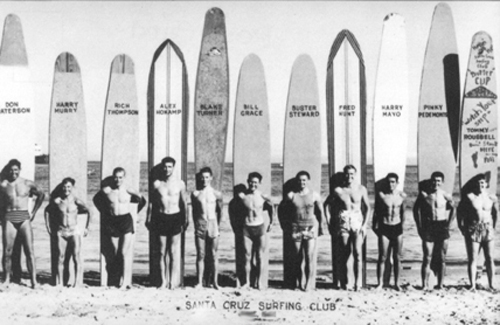Gangland is one of the—if not the—most egregious peddlers of ‘crimesploitation’ consumed in America these days. What is crimesploitation? Crimesploitation is a portmanteau of the words ‘crime’ and ‘exploitation,’ and it describes a particular type of media text that exploits crime. I propose that crimesploitation is a genre with the following characteristics: crime is its basic topic; its story is not fictional; it is based on real events; it is emotionally stimulating: titillating, embarrassing, erotic, sympathy-inducing, frustrating, sad, empowering, shameful, redemptive, etc; it fetishizes emotionally stimulating and sensual images and sounds: tattoos, dead bodies, drug paraphernalia, wounds, muscles, weapons, tears, shouting, erotic displays of masculinity and femininity, etc.; ts narrative structure is simplistic and flat (e.g., a bad person gets caught doing evil and is punished); it does not attempt to explain criminal behavior (or, if any explanation is attempted, it is simplistic and relies on stereotypes)
Why is crimesploitation popular? Crimesploitation is popular because it is exciting. In the first place, it provides a safe antidote to boredom because it allows bored people to feel excitement without actually participating in any of the excitement depicted in its narrative. Put another way, crimesploitation is crime tourism, offering a free, easy, and risk-free trip into one of various cultural scenes of criminality (e.g., gangs, prison, internet sex-chat, policing, addiction, etc.). Restating it a third way: crimesploitation is experienced as harmless fun because it offers an exciting diversion for bored persons without disrupting the conditions of America’s political economy that favors docility and rewards Fordist labor.
Secondly, crimesploitation is voyeuristic, providing a mediated opportunity for fantasy. Part of crimesploitation’s emotional power can be understood in terms of its interpellation. Lockup, for example, invites the viewer to imagine himself in prison. How would you stack up against this huge, muscled, heavily tattooed man?, it asks. Or, imagine yourself as this badass, it says. Ever wonder what it feels like to smoke crystal meth? Intervention has an answer for you. Want to chase a bad guy and beat him up? Tune in to Cops. Even the at-first-glance repellant ‘predators’ on To Catch a Predator invite the viewer to imagine himself as a horny man perusing the internet for young bodies—or, to imagine herself as a seductive decoy. When discussing To Catch a Predator in class, one of my female students said: “Ooh, I would totally be a decoy. I can act real young.” Crimesploitation’s crime tourism offers all kinds of voyeuristic opportunities for (seemingly) harmless fantasy.
I argue that, in fact, crimesploitation is not harmless partly because of its apparent harmlessness. Crimesploitation is harmful, I argue, because it 1) dumbs down explanations of criminal behavior, 2) perpetuates stereotypes, 3) obscures structural sources of crime, 4) constructs useless, distracting, and inaccurate meanings of crime, and 5) conceals Modernity’s numbing boredom through distraction (it is an ‘opiate’). In these senses, crimesploitation is an especially bad form of guilty pleasure. Like candy, fast food, or the illegal drugs depicted in some of its stories, crimesploitation provides a quick, cheap, (sort of) tasty satisfaction to distract us from our boring Modern lives while simultaneously instantiating simplistic ideas about crime and hiding deep causes of crime.
What is the purpose of crimesploitation? The purpose of crimesploitation is to sell commercial airtime to advertisers in order to make profits for corporations. Because crimesploitation’s goal is to achieve high TV viewing ratings in order to demand high fees from advertisers, it believes it is necessary to deal in simplistic, flat narratives of crime. Crimesploitation is created by professional producers of low grade entertainment, not persons with advanced knowledge of criminal behavior. In this sense, crimesploitation is the opposite of criminology. Criminology’s goal is to explain criminal behavior, which often entails delineating complex theories and subsequent (even more complex) empirical tests of those theories; it is an intellectual enterprise. Crimesploitation is anti-intellectual, anti-explanatory, anti-idea; it deals only in emotion. It is in this sense—commercially driven and highly emotional junk TV—that I mean exploitive. Crimesploitation takes advantage of harmful phenomena—criminal behavior—to enrich itself, at the expense of sophisticated and potentially ameliorative understandings of crime.






